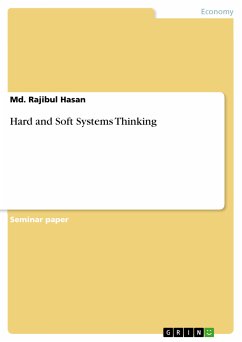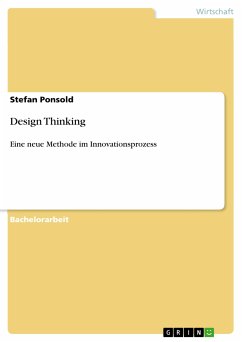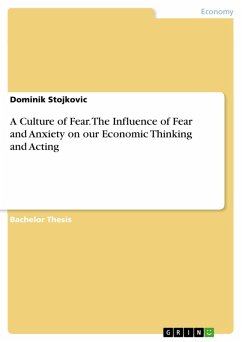Seminar paper from the year 2011 in the subject Business economics - Business Ethics, Corporate Ethics, grade: Distinction, University of Lincoln, language: English, abstract: Checkland has been developing the system thinking and system developing for more than 30 years since 1970s. Undoubtedly, the greatest contribution of his work is his Soft System Methodology (SSM), which is playing a very significant role in the field of contemporary system practice. There is another system based methodology that can be used to apply system thinking to the resolution of the system. Checkland defined this kind of system thinking as Hard System Thinking (HST)(Checkland,1981). The success that human landed on the moon in 1970s is a good example of Hard System Thinking. Checkland (1981) found that Hard System Thinking has the weakness of dealing with the diversity of human activity system, especially in case of the difference and conflict of world views and values within human organization. Finally, Checkland (1999) shows that SST and HST are two different stances in contemporary system practice (Zexian and Xuhui, 2010). This paper focuses on discussing the Hard and Soft thinking and methodologies. The first section will present the definition and process descriptions of the two systems. Later, the second section will represent the comparison of the Hard and Soft System Thinking and it will also represent the circumstances where the two system thinking may overlap. Then, the third section will demonstrate a Rich Picture, a Flow Chart and evaluate the decision process by using the example of the case study "Celtic Tiger PR".
Dieser Download kann aus rechtlichen Gründen nur mit Rechnungsadresse in A, B, BG, CY, CZ, D, DK, EW, E, FIN, F, GR, HR, H, IRL, I, LT, L, LR, M, NL, PL, P, R, S, SLO, SK ausgeliefert werden.









